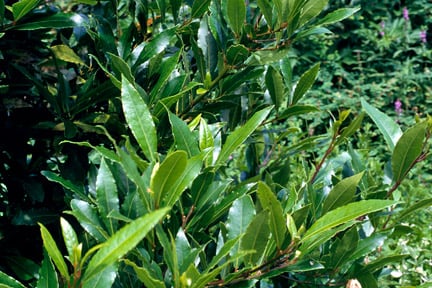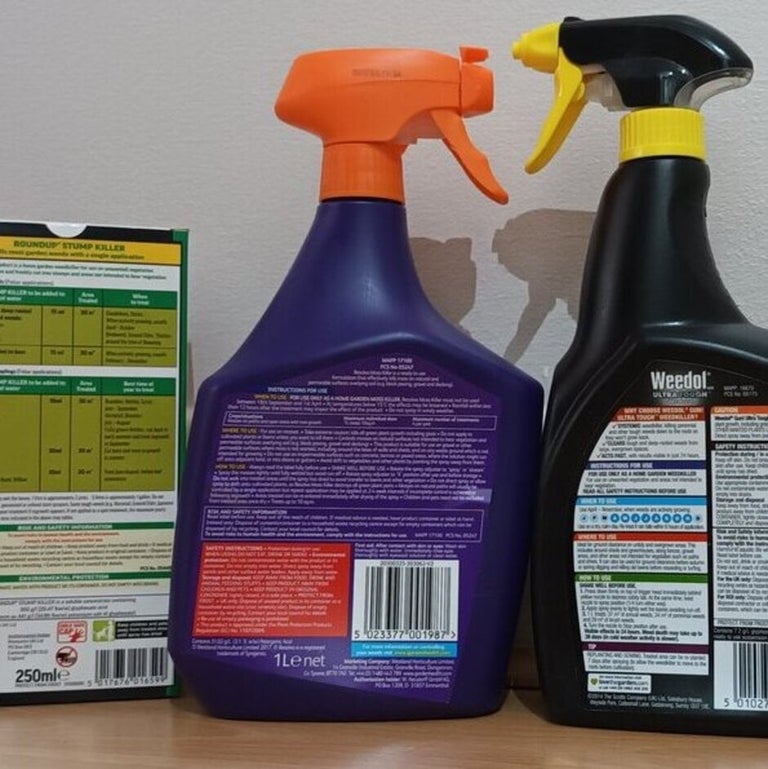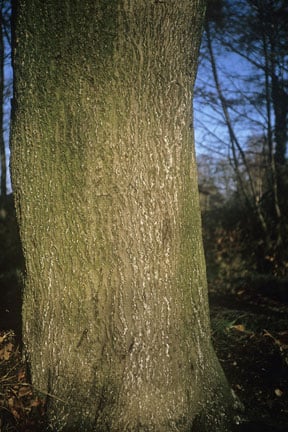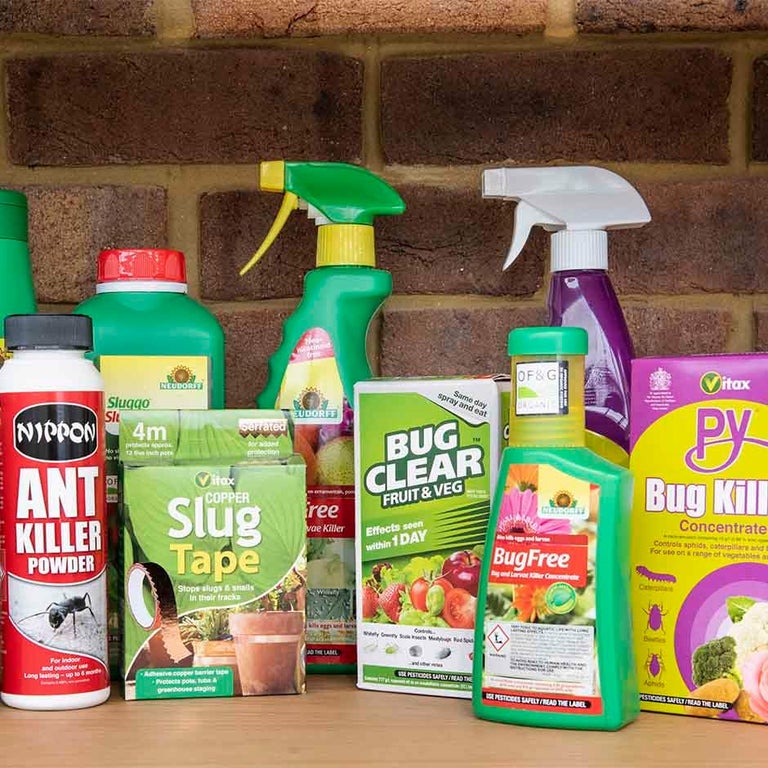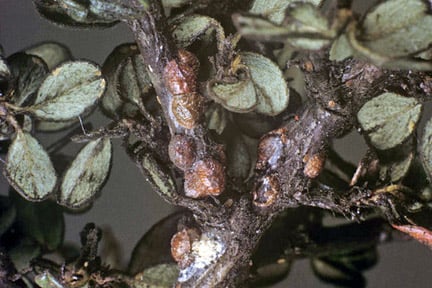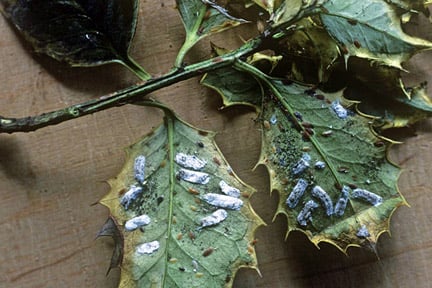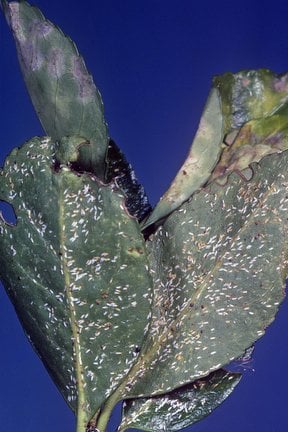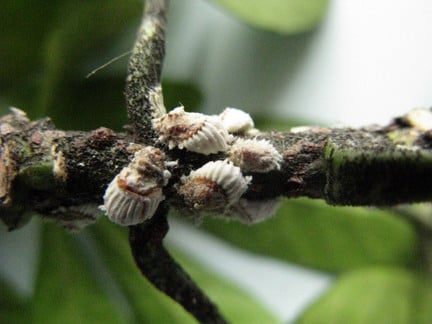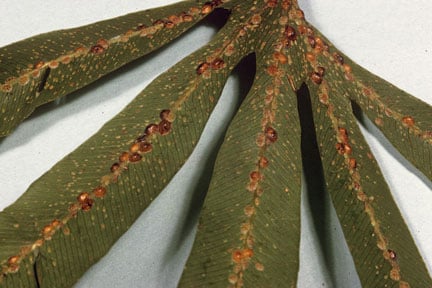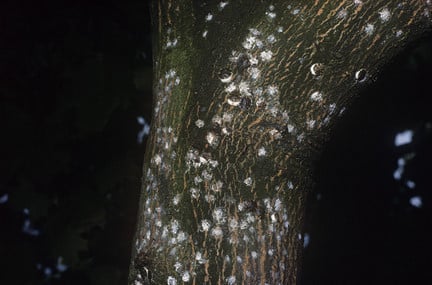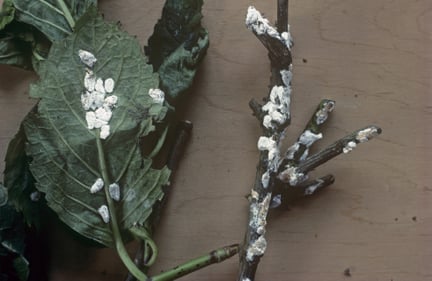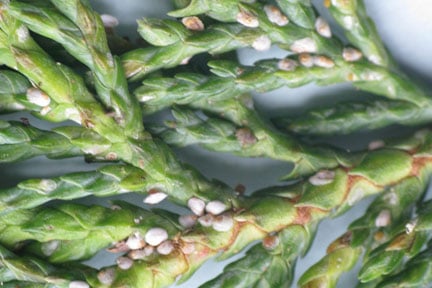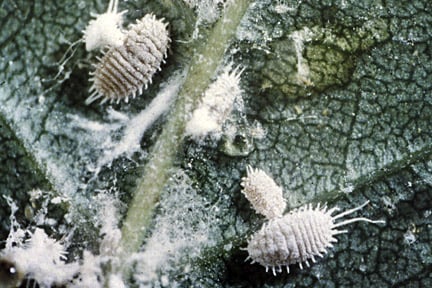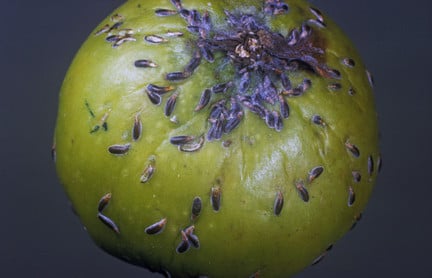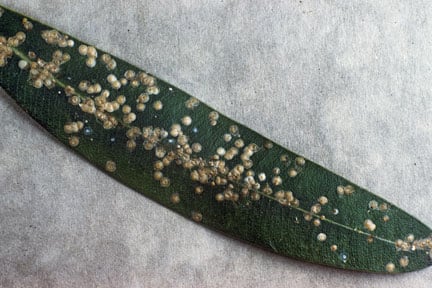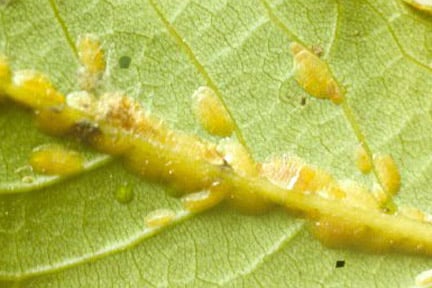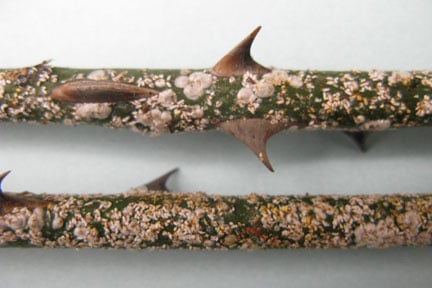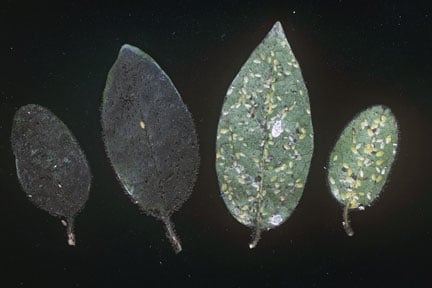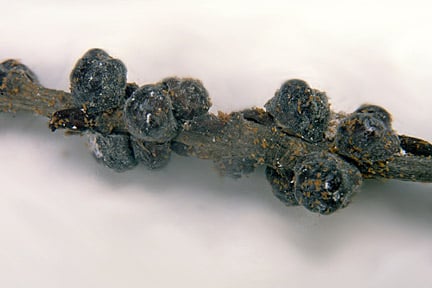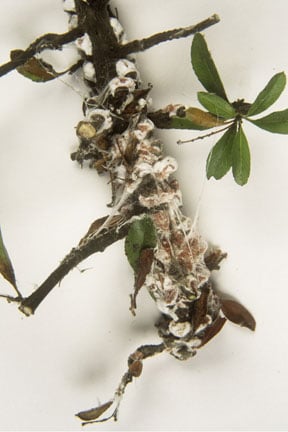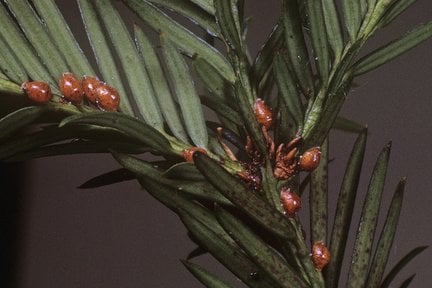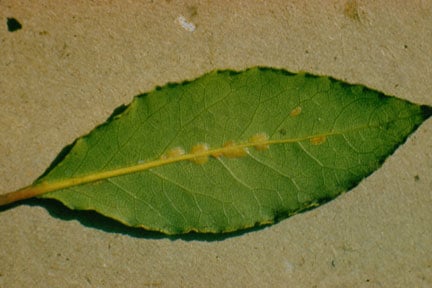
Quick facts
Common name - Soft scale
Scientific name - Coccus hesperidum group
Plants affected - A wide variety, common on citrus and bay
Main symptoms - Sticky leaves and sooty mould
Caused by - Sap sucking scale insects
What is soft scale?
Scale insects are sap sucking true bugs belonging to several families in the Hemiptera. Typically the adults are immobile having a flattened or raised appearance, with no visible legs. They often look like a ‘scale’ on a leaf or stem, many species produce a white wax often covering egg masses. There are more than 100 species found in Britain, 26 of which have been introduced. More than 25 species can be found in gardens or on houseplants.
Soft scale is a flat, oval, pale yellow/brown insect. The pale covering of the insect is waxy and repels liquids. The adults reach up to 4 mm long, the immature (nymph) stages are much smaller. It is found near the midribs of leaves and on stems.
It produces large amounts of honeydew and breeds throughout the year. It feeds on many garden and glasshouse plants, including bay, Ficusand Citrus species, ivy and ferns.
Symptoms
Populations of soft scale are characterised by heavy deposits of sticky honeydew upon which a black non-parasitic fungus sooty mould often grows. The 4 mm long pale yellow/brown insects will be evident upon examination of the undersides of leaves and stems.
Management
If you encounter this insect on indoor plants then please consult our page on indoor plants: sap feeders for indoor specific advice.
- Where possible tolerate populations of scale insects. Well-tended healthy plants are able to tolerate light populations of these insects and so they do not necessarily require management
- Encourage predators in the garden, some ladybirds, parasitoid wasps and some birds will eat scale insects
- Adult scales and egg masses can be removed when seen but this may not reduce large populations
- The nematode Steinernema feltiae can be purchased as a biological control of soft scale and is available from some Biological control suppliers. Nematodes have the potential to infect non-target animals. They should therefore be used with care and only when there is a specific problem to treat
- Consider replacing severely affected plants
Downloads
Biological control suppliers (pdf document)
Biology
Female soft scales can lay up to 200 eggs underneath their body. These hatch into small pink crawler nymphs which move over the plant surface before settling down to feed. They are small enough to be easily blown around in wind currents and this is the main way that plants are colonised. The nymphs suck sap from the leaves and stems and, once feeding has commenced, they usually remain immobile for the remainder of their lives.
In warm conditions breeding is continuous throughout the year.
A waxy layer is secreted over their bodies to form the scale, and this layer gives them some protection
